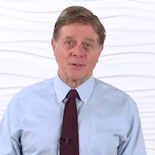Diagnosis and Management of Acquired Functional Speech Disorders
Presented by Joseph Duffy
12-Month Subscription
Unlimited access to:
- Thousands of CE Courses
- Patient Education
- Home Exercise Program
- And more
Meet your instructor

Joseph Duffy
Joseph Duffy, PhD, is currently a Professor of Speech Pathology and a practicing Medical Speech Pathologist at The Mayo Clinic. His research interests include neurologic motor speech disorders (the dysarthrias and apraxia of speech), acquired language disorders (aphasia) and acquired psychogenic speech disturbances. The…
Chapters & learning objectives

1. What Are Functional Speech Disorders?
Making an accurate diagnostic distinction for a functional speech disorder presents a unique challenge for speech language pathologists. Join Dr. Duffy as he defines functional speech disorders, describes their various manifestations, and addresses their diagnostic prevalence.

2. Psychiatric, Psychosocial, and Neurologic Influences and Comorbidities
Psychiatric, psychosocial, and neurologic factors may influence functional speech disorders (FSDs). In this chapter, Dr. Duffy discusses various diagnoses that may be associated with and influence the development of FSDs, as well as the frequent lack of a clear psychogenic etiology for these disorders.

3. Examination and Differential Diagnosis
Distinguishing between motor speech disorders and functional speech disorders can be difficult for speech language pathologists. Knowing the rules and appropriate diagnostic examination procedures is critical for an accurate diagnosis. Listen to a range of speech abnormalities with Dr. Duffy as he explains their meaning and interpretation.

4. Management, Therapy, and Take Home Points
Your patient has a functional speech disorder diagnosis – now what? Dr. Duffy reviews the principles of managing FSDs, explains the common steps to creating a treatment plan to facilitate speech change, and discusses the important role of counseling in effective treatment.

5. Q&A
Dr. Duffy concludes this course by answering questions about functional speech disorders from a speech and hearing sciences doctoral candidate.